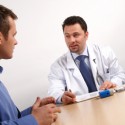Help Young Adults Manage Fetal Alcohol Syndrome
The Centers for Disease Control (CDC) has awarded Saint Louis University a grant to develop and test a new program to help older children and young adults with Fetal Alcohol Spectrum Disorders (FASD).
The impetus of the program will be to improve transition into adulthood. The new program will focus on teaching important life skills, such as how to cope with new situations and minimize disruptive behaviors that could lead to loss of employment or trouble with the law.
According to Leigh Tenkku, Ph.D., assistant professor of family and community medicine at Saint Louis University, while the effects of FASD are lifelong, currently there are very few support systems in place to help these individuals and their families as they get older.
“The brains of individuals with FASD are not fully developed, which affects their ability to handle emotions, problem solve and pick up on social cues,” Tenkku said.
“As they get older, these problems affect their ability to maintain a job, their relationships and their parenting abilities.”
The new program, called Partners for Success, combines personal mentors and therapeutic home visits to provide one-on-one support similar to the popular Parents as Teachers model, only intensified. The goal of the program is to give individuals with FASD the tools and support necessary to successfully navigate the challenges of adulthood.
“This is a totally new approach to mentoring older children and adults with FASD, but it’s built on well-established research in the field. This program is very promising and we’re hopeful that it will revolutionize the way we support these individuals,” Tenkku said.
Currently in the U.S., there are no social service programs geared to the specific needs of youth and young adults with FASD. Instead, social agencies offer a hodgepodge of programs that address the broader needs of those with developmental disabilities.
In a time of budget cuts and tightening financial belts, Tenkku says one of the most important aspects of the program is that it is financially feasible and easy for other agencies to implement.
“We want our program to be practical and easily replicated by other agencies that provide FASD services. We’re creating the tool, but they have to be able to use it. That’s how we’ll help the greatest number of people,” Tenkku said.
“The overall cost of the program is relatively low. The Partner for Success program is an investment in the future of these individuals. Doing nothing would certainly cost us more in the long run.”
About Fetal Alcohol Spectrum Disorder
Drinking during pregnancy can lead to serious physical abnormalities, neurological and behavioral problems, all characteristics of fetal alcohol spectrum disorders. FASD is the greatest cause of children born with developmental disabilities each year in America even though it is 100 percent preventable.
Fetal alcohol syndrome is the most severe form of FASD. Babies born with fetal alcohol syndrome, which is estimated to affect one to two babies born per 1,000, are often born preterm, have low birth weight and long-term growth problems.
During the first year of the Partners for Success study, researchers at Saint Louis University will collaborate with several community partners, including the Family Support Network, to design the program.
At the same time, they will recruit 100 youth and young adults with FASD to participate in the study.
The program will be implemented during the second year. Half of the study participants will be enrolled in the new program, while the other half will continue to receive standard support services.
Participants enrolled in the program will receive biweekly home visits from a licensed clinical social worker. They also will be assigned a mentor who will meet with them weekly to socialize, model appropriate behavior in the community, and help the individuals integrate the techniques taught during home visits, in their daily lives.
During the final year of the study, researchers will follow up with participants to measure the success of the program.
“Of course ultimately we’d like to prevent FASD from occurring. But the sad reality is that 1 percent of children and young adults in our society suffer with the lifelong effects of drinking during pregnancy. It’s imperative that we find better ways to support these individuals,” Tenkku said.
source: St Louis University
